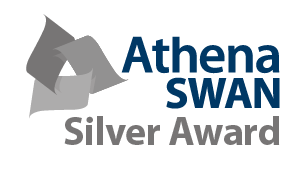This page lists some useful links to research platforms, processes and things to know for researchers and administrators. If you can’t see what you need here, or if you need any further information, please see the Technology Libraries Research Support website or contact the library team.
-
Open Access
What is it? Most major research funders, including UKRI, now have a mandate for outputs to be made Open Access. This means a publication will be freely available online via an Open Access Repository or publisher. The simplest way to make sure that research outputs are Open Access is to upload the Authors’ Accepted Manuscript to Symplectic Elements. This will enable it to go live on the University Repository.
Where to get help: The Open Access Guide for Administrators and Librarians introduces Open Access and provides information on the REF, Funder Policies, Self-Archiving and Rights Retention, and related issues.
The Library Team have put together a Guide to Ensuring Open Access Compliance which you can access on the Library website or download as a PDF.
-
Symplectic Elements
What is it? Symplectic Elements is a central point of information about research outputs, and the way to upload publications to the University Repository. Researchers should keep their profile up to date by uploading the Author’s Accepted Manuscript of any publication. Symplectic Elements is also used to make research outputs Open Access and link them to funding.
Where to get help: See the Elements Instructions for Researchers guide (PDF). If you need support, contact the library or the Research Information Office.
-
ResearchFish
What is it? ResearchFish allows the UK research councils to gather evidence about how grant money is used and how it affects society. Research outputs can be added via Symplectic Elements throughout the year but must be checked and submitted to ResearchFish during February and March each year.
Where to get help: Visit the Cambridge Research Operations Office site for guidance. You can also watch a video tutorial.
-
Moodle
What is it? The University’s Virtual Learning Environment. Every taught course/module at Engineering has its own course within this system to support the teaching and learning of that course. It can be used amongst other things, to collect course work, share course notes and communicate with students. Outside of teaching, it is used as a repository of meeting minutes, agendas and communications.
Where to get help: The Moodle Support team in the library can help with any queries you have, there are online instructions for specific aspects of Moodle for Engineering and centrally.
-
Technical Reports
What are they? Departmental Technical Reports are created by researchers, academics and postgraduates in the Department. Each Technical Report has a unique identifying number, which is generated by the Engineering library. You can then upload your Technical Reports to the University Repository via your Symplectic Elements account.
Where to get help: To receive a Technical Report number, or for help uploading a Technical Report via Symplectic Elements, contact the library.
-
Data Management
What is it? There is an increased emphasis in Higher Education on managing and sharing any data produced in the course of research. Many of the research funders supporting work at the University of Cambridge require that research data are openly available with as few restrictions as possible. It can be useful to create a Data Management Plan for your research project. DMP Online helps you to create and share Data Management Plans that meet institutional and funder requirements.
Where to get help: For more information visit the Data.cam website or contact the library.

